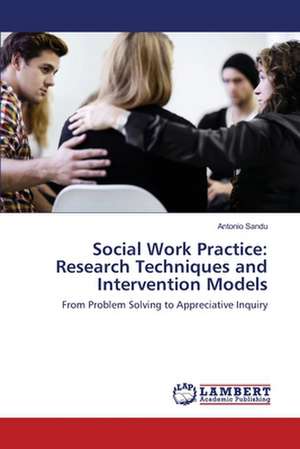Social Work Practice: Research Techniques and Intervention Models
Autor Sandu Antonioen Limba Engleză Paperback – 5 mar 2013
Preț: 460.41 lei
Preț vechi: 500.45 lei
-8% Nou
Puncte Express: 691
Preț estimativ în valută:
88.11€ • 91.65$ • 72.74£
88.11€ • 91.65$ • 72.74£
Carte tipărită la comandă
Livrare economică 15-29 aprilie
Preluare comenzi: 021 569.72.76
Specificații
ISBN-13: 9783659344787
ISBN-10: 3659344788
Pagini: 284
Dimensiuni: 152 x 229 x 16 mm
Greutate: 0.42 kg
Editura: LAP Lambert Academic Publishing AG & Co. KG
Colecția LAP Lambert Academic Publishing
ISBN-10: 3659344788
Pagini: 284
Dimensiuni: 152 x 229 x 16 mm
Greutate: 0.42 kg
Editura: LAP Lambert Academic Publishing AG & Co. KG
Colecția LAP Lambert Academic Publishing
Notă biografică
Antonio SANDU has a Ph.D. in Philosophy. Author's contributions in the field aims to develop an appreciative ethic of care, derived from the appreciative constructionist perspective and a new semiotic methodology, called fractal constructionism. The author also develops a model of applied philosophy, called Appreciative Philosophical Counseling.










